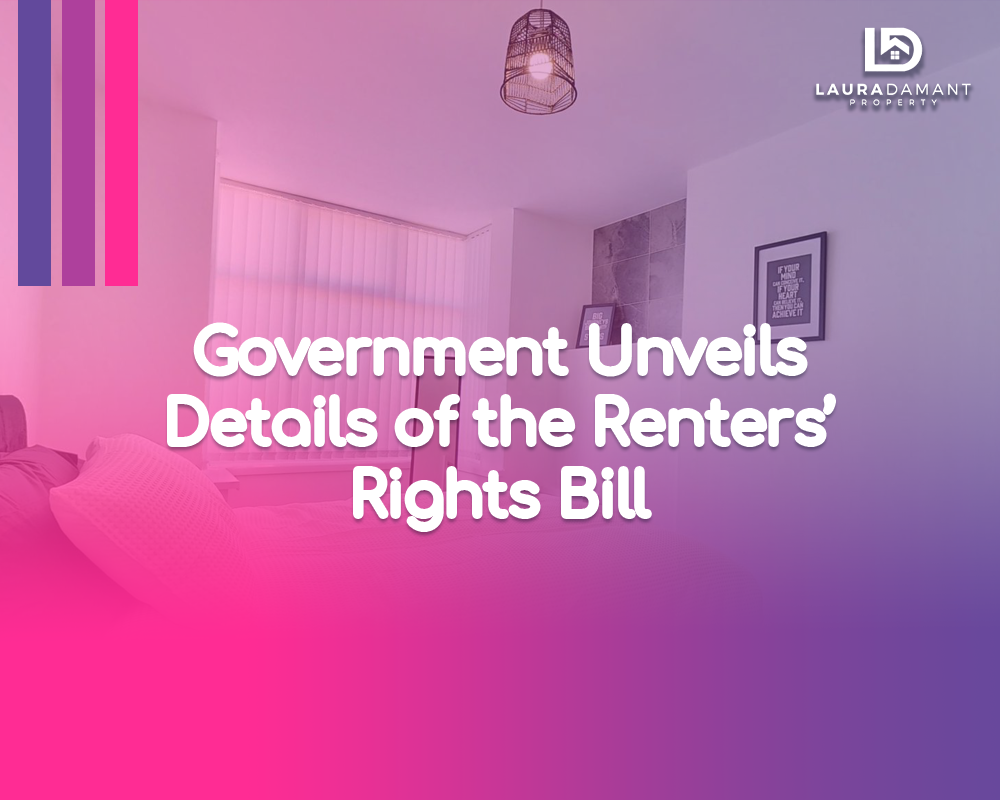September 30, 2024
Earlier this month, the Government provided more information about the highly anticipated Renters' Rights Bill, which has been met with mixed reactions. The Bill is expected to come into effect around April or May next year. Laura Damant from L D Property summarises the key points of this legislation and what it means for landlords and tenants. Matthew Pennycook, Labour’s housing minister and the Bill's main architect, has shared insights into the extensive new regulations, responsibilities, and potential penalties that landlords and property agents will encounter once the legislation is enacted. For landlords and property agents like L D Property, understanding these changes will be crucial for navigating the evolving rental landscape. Key Changes for Tenancies A significant shift will occur as the long-standing fixed-term Assured Shorthold Tenancies in England will be replaced primarily by open-ended periodic tenancies. This change allows tenants to provide two months’ notice to vacate at any time during their tenancy. Conversely, landlords will face increased difficulty and extended processes when seeking to evict tenants. Rent Increase Regulations Landlords will be limited to one rent increase per year, aligned with market rates, which must be executed through an official Section 13 notice. Tenants will receive two months' notice before any rent increase takes effect and will have the right to challenge such increases using a streamlined First Tier Tribunal process. Additionally, rent review clauses in tenancy agreements will be eliminated, creating a more predictable environment for tenants and landlords alike. New Ombudsman Requirements All landlords will be required to enrol in a paid membership with the Private Rented Sector Landlord Ombudsman, regardless of whether they utilise a letting agent. This ombudsman will serve as a resource for tenants wishing to file complaints. Should disputes remain unresolved, the ombudsman will have the authority to compel landlords to issue apologies, provide necessary information, undertake corrective actions, or pay compensation. Non-compliant landlords risk fines up to £40,000. Establishment of a National Database A new Private Rented Sector Database will be created, mandating landlords to publicly register their personal and property details. Failure to comply with this requirement may result in fines reaching £40,000. This database will also serve as a training and informational hub for landlords, helping them understand their obligations better. Addressing Rental Discrimination The Renters' Rights Bill will formalise a ban on discrimination against tenants with children or those receiving benefits. While landlords will retain the discretion to make decisions based on a tenant’s financial capability, they will no longer be able to deny tenancy solely based on these characteristics. For example, a landlord may refuse a mother with a baby from renting a studio flat, provided they have legitimate reasons. Additionally, agreements or mortgage terms that restrict renting to families or Universal Credit recipients will be outlawed, with penalties of up to £7,000 for violations. Prohibition of Bidding Wars To combat unethical practices, the Bill will ban bidding wars in the rental market. Once the Renters' Rights Bill is enacted, landlords and letting agents must clearly state the asking rent for their properties and are prohibited from encouraging or accepting bids that exceed this figure. L D Property supports this initiative, as it aligns with their mission to provide transparent and ethical rental practices. Tenant Rights Regarding Pets As previously indicated, tenants will gain the right to contest landlords who impose ‘no pets’ restrictions. However, landlords may require tenants with pets to obtain pet damage insurance to cover potential damages. L D Property encourages responsible pet ownership while also advocating for tenant rights. Ensuring Property Quality Landlords will be obligated to ensure their properties comply with national Decent Homes Standards, which include addressing damp and mould issues promptly, as outlined by ‘Awaab’s Law.’ Tenants will have the legal right to sue landlords for failing to meet these standards. L D Property emphasises the importance of maintaining high-quality rental properties for the well-being of tenants. Enhancements to Rent Repayment Orders (RROs) Tenants currently use Rent Repayment Orders to reclaim rent when landlords neglect to license a property. Labour intends to double the duration for which tenants can claim to 24 months of rent and expand the criteria for RROs to encompass: Reckless or intentional misuse of possession grounds; Violations of letting or marketing restrictions; Persistent breaches of tenancy regulations despite imposed penalties; Provision of false information to the PRS Database under the guise of compliance; Ongoing failure to register with the PRS Database following penalties for non-compliance. Additionally, RROs will extend to include ‘superior landlords’ and company directors to encompass the rent-to-rent sector. L D Property is prepared to assist landlords in navigating these changes to ensure compliance and avoid potential penalties. As these changes come into effect, L D Property remains committed to providing exceptional service and guidance to both landlords and tenants in navigating the evolving rental landscape.











